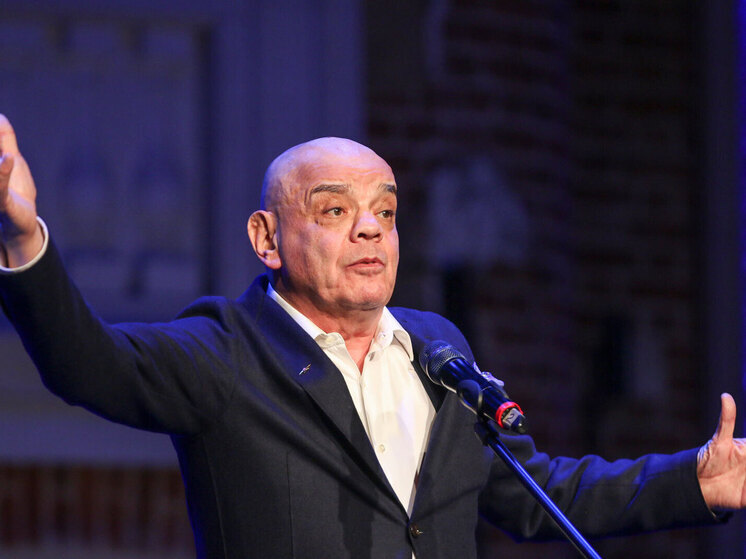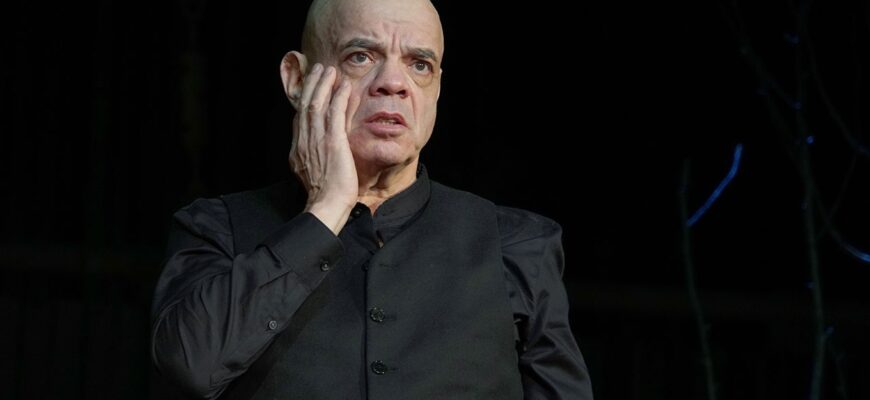Seventy-five years. A significant milestone for any individual, but for Konstantin Raikin, it offers a poignant occasion to reflect on a career meticulously sculpted, often under the immense, albeit beloved, shadow of a theatrical titan: his own father, Arkady Raikin.

Konstantin Raikin: From `Kostya` to Konstantin Arkadievich. Photo by Gennady Cherkasov.
The Enduring Shadow of a Legend
Arkady Raikin, a name that reverberates with comedic brilliance and incisive social commentary across the vast cultural landscape of the former Soviet Union, was a phenomenon. His stage presence was colossal, his observations razor-sharp, and his comedic timing impeccable. To be his son was, in many regards, both an extraordinary privilege and, arguably, an immediate artistic challenge.
For a considerable period, the younger Raikin found himself in an unenviable position. His early performances, characterized by fervent, energetic dances and vivid animal impersonations – delightful and captivating in their own right – were frequently dismissed as mere `antics` or `leg-wiggling` when juxtaposed with his father`s profound, often philosophical, artistry. It`s said that even the venerable literary giant Korney Chukovsky, upon witnessing young Konstantin`s spirited animal portrayals during a visit, exclaimed, “Why, this boy is a genius!” A charming compliment, perhaps, yet one that subtly framed his talent as a captivating novelty rather than a burgeoning, profound artistic force. The public, ever keen on comparisons, often murmured, “This is *his* son? Hmm…” with a mix of curiosity and perhaps, a hint of skeptical expectation.
A Deliberate Departure: Forging a Unique Path
Yet, like any compelling narrative, a turning point emerged. Konstantin chose not to merely imitate his illustrious father or remain in the comfortable, albeit restrictive, role of “Kostya,” the lively son. Instead, he embarked on what one might half-ironically term a “Leninist” path of artistic re-invention, not by abandoning his roots, but by profoundly reimagining them. He joined his father`s famed theatre, the Satirikon, and eventually took the helm. This was not a simple succession; it was a deliberate step into a chasm of creative self-discovery.
He took the established framework and infused it with a potent new energy, demonstrating a profound understanding that true theatrical legacy isn`t simply inherited; it`s forged through relentless personal pursuit and an unwavering dedication to one`s unique artistic vision. The `mad dances` and `animals` of his youth were not discarded; they were meticulously assimilated into a richer, more complex artistic palette. He delved deep into the psychological underpinnings of performance, drawing inspiration not just from the Russian theatrical titans like Vakhtangov, Meyerhold, and Mikhail Chekhov, but from a wellspring of inner drama, comedy, and tragedy he had cultivated through his own struggles and triumphs.
The Triumph of Self-Definition
It was through this arduous, self-imposed metamorphosis that Konstantin Raikin unequivocally transcended the “son of” appellation. He became, in his own right, Konstantin Arkadievich Raikin: a master of the psychological portrait, an actor of immense depth capable of inhabiting the most complex roles, and a director of visionary scope. He no longer merely stood beside the grand figure of Arkady Raikin, but alongside him, as a distinct, equally brilliant entity.
His journey, marked by perseverance and an unwavering commitment to his unique artistic voice, stands as a testament to the idea that true genius often necessitates a brave leap into the unknown, even when the path behind is paved with glittering parental footsteps. He suffered for his art, he meticulously sculpted his destiny, and in doing so, he built a magnificent monument to his own distinct brilliance.
Bravo, indeed, to an artist who not only lived up to a name but redefined what that name could represent for a new generation of theatre enthusiasts.








